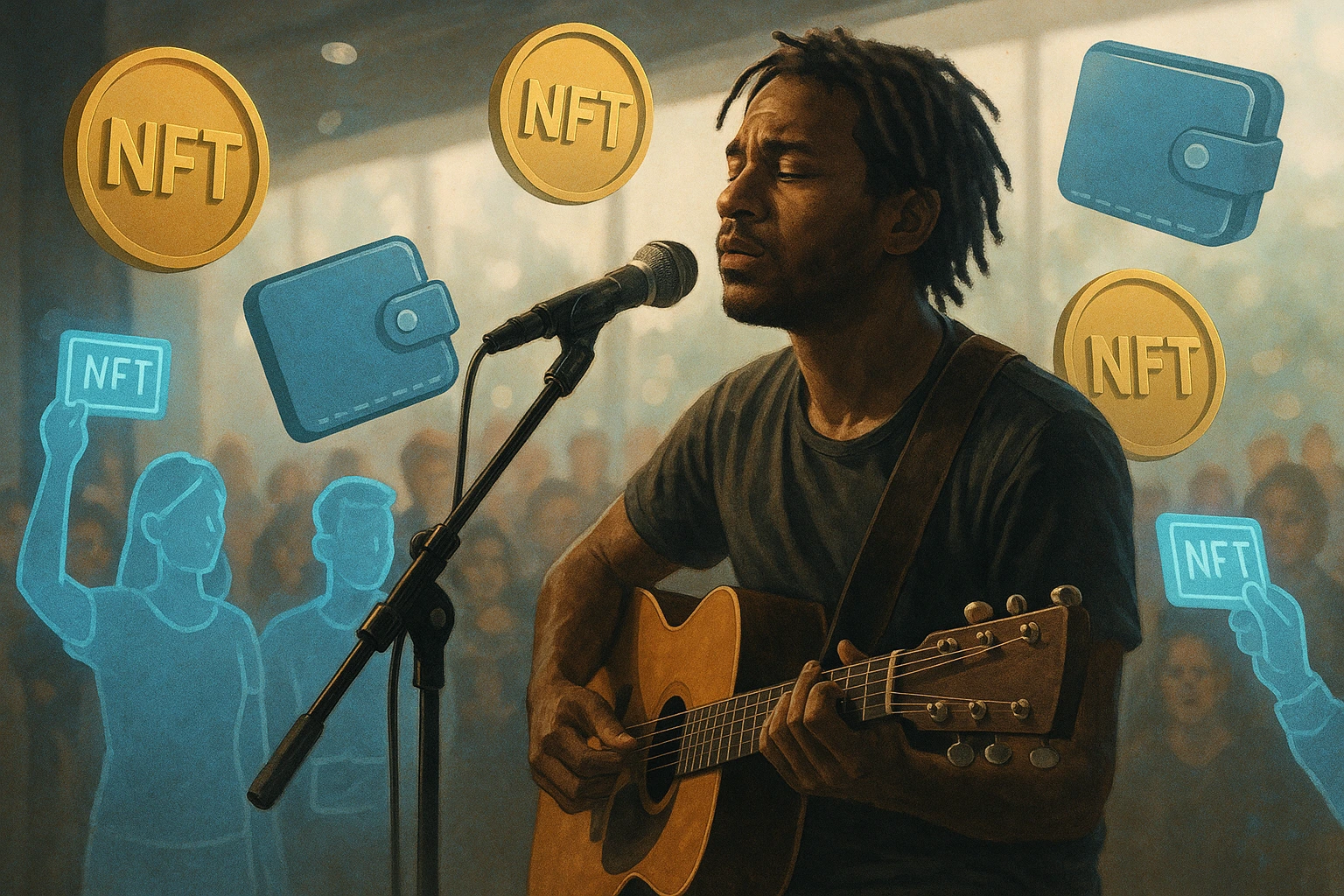For generations of musicians, the term “gig economy” has meant a life of hustle, navigating a landscape of venue owners, booking agents, and streaming platforms that all take a significant cut of their revenue. The traditional structure has often left artists with little control over their work and even less of the profit.
However, the rise of blockchain technology, specifically Non-Fungible Tokens (NFTs), is creating a paradigm shift. In 2025, a new Web3-powered gig economy is emerging, allowing musicians to bypass intermediaries, connect directly with their fans, and reclaim ownership over their creative and financial destinies.
Beyond Streaming Royalties: NFTs As a New Revenue Model
The streaming model, while offering unprecedented distribution, has been widely criticized for its minuscule royalty payouts. NFTs are fundamentally changing this equation. Musicians can now mint their songs, albums, or even exclusive behind-the-scenes content as unique digital assets on the blockchain. This allows them to sell their work directly to their audience, setting their own prices and keeping a vast majority of the revenue.
But the innovation doesn’t stop at the initial sale. A key feature of NFT smart contracts is the ability to program in automatic royalty payments on all future secondary sales. This means that every time an NFT of their song is resold on the open market, the original artist receives a percentage of that sale in perpetuity. This creates a sustainable, long-term income stream that is enforced by code, not by a complex and often opaque web of collection agencies. It transforms a piece of music from a single-purchase item into a dynamic, revenue-generating asset.
Tokenized Tickets and Fan-owned Experiences
The Web3 revolution in music extends far beyond just the songs themselves. Artists are now using NFTs to reimagine the live music experience. Instead of traditional paper or digital tickets, many are issuing NFT tickets for their concerts. These are not just simple entry passes; they are programmable digital collectibles that can unlock a world of unique experiences.
An NFT ticket might grant a fan access to an exclusive pre-show soundcheck, a virtual meet-and-greet, or a special merchandise drop. After the show, the NFT can evolve, perhaps becoming a digital stub that includes a recording of the concert the fan attended, creating a unique and personal memento.
This approach fosters a deeper, more engaging relationship between the artist and their fans. It transforms a one-time transaction into an ongoing connection. Furthermore, these tokenized experiences can be traded on secondary markets, creating a vibrant economy around the artist’s brand. The platforms that facilitate this new economy, like the YWO trading platform, are those that can handle a diverse range of digital assets and provide a secure environment for these novel transactions.
Building a Community with Social Tokens
Another powerful tool in the Web3 musician’s toolkit is the “social token” or “creator coin.” This allows an artist to launch their own branded cryptocurrency, which their most dedicated fans can buy to show support and become part of an exclusive community.
Holding a certain amount of an artist’s social token could grant access to a private Discord channel, early access to new music, or even voting rights on creative decisions, such as the setlist for an upcoming tour or the artwork for an album cover.
This model transforms the fan-artist dynamic from a passive consumer relationship into an active, collaborative partnership. Fans become true stakeholders in the artist’s success. This deep level of engagement is something that traditional platforms cannot replicate. To manage the financial side of this new economy, musicians need reliable financial infrastructure.
This includes having access to a range of secure account types that can handle both traditional fiat and various digital currencies, allowing them to easily manage their earnings from these new Web3 revenue streams. By embracing these innovative tools, musicians are not just finding new ways to monetize their art; they are building more resilient, independent, and fan-centric careers.

